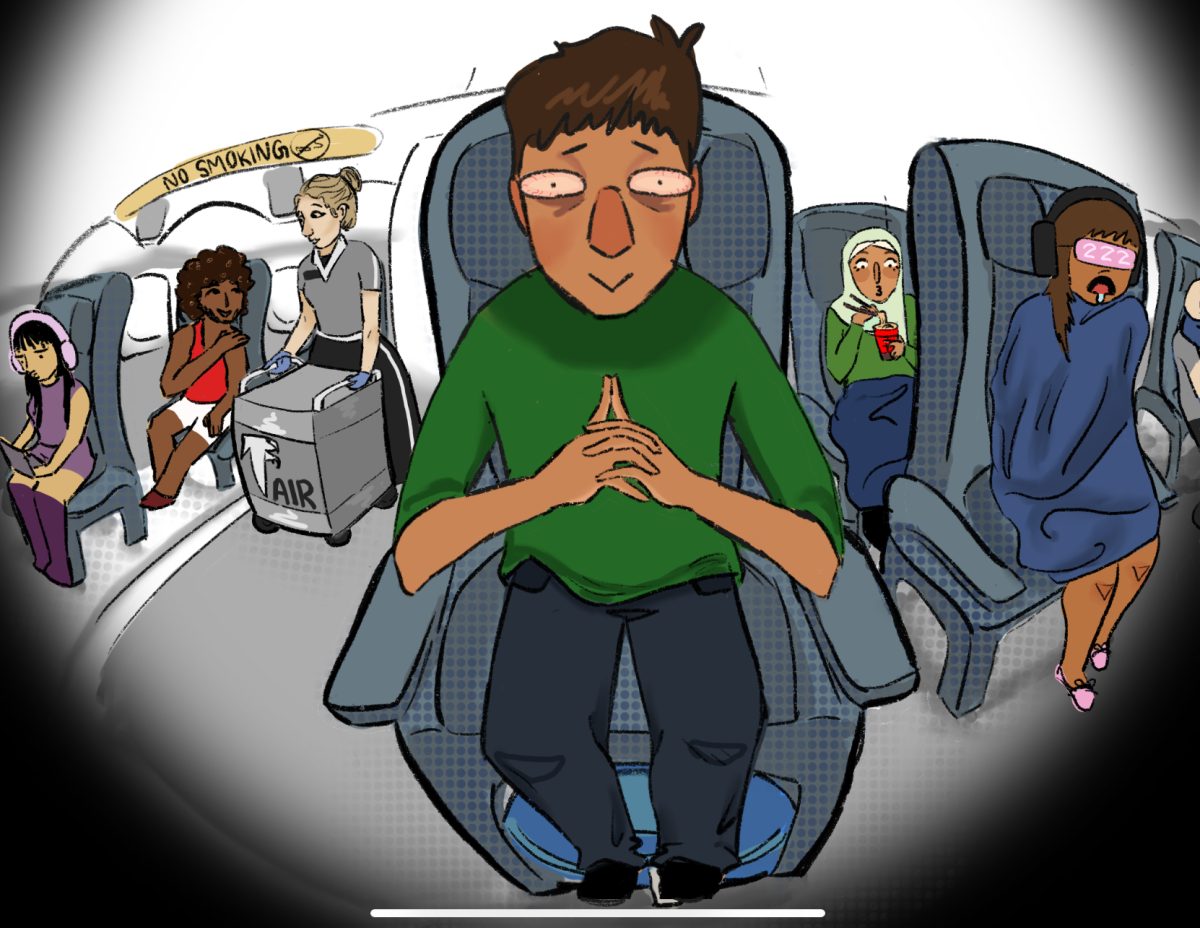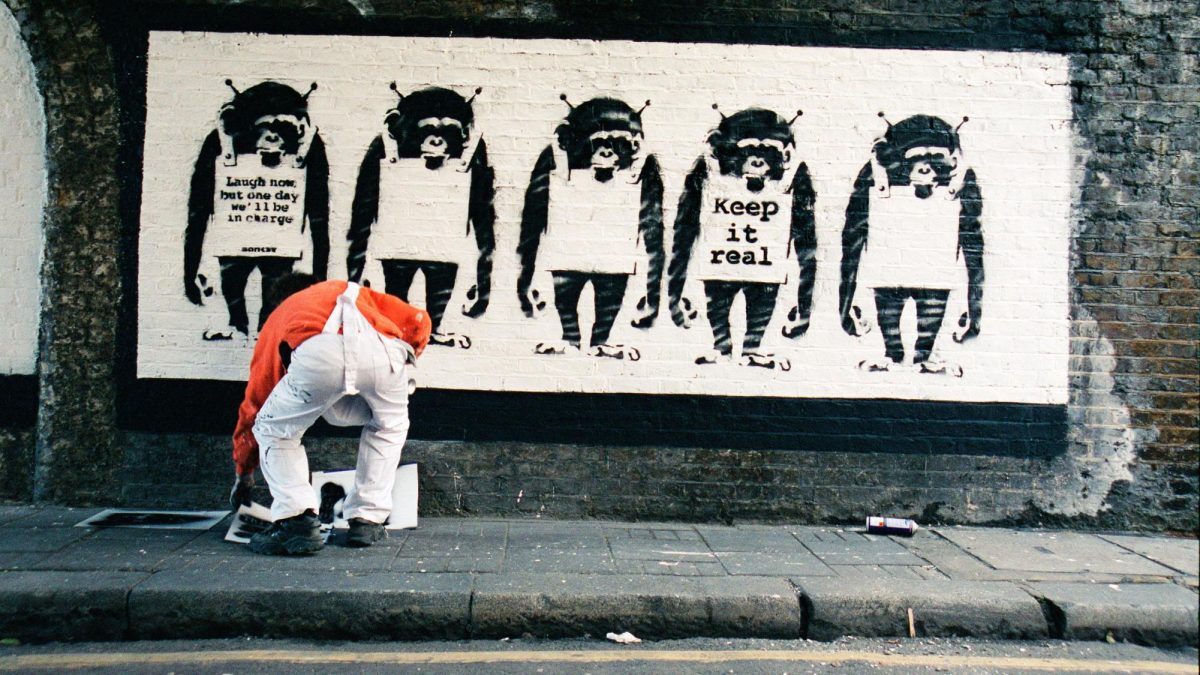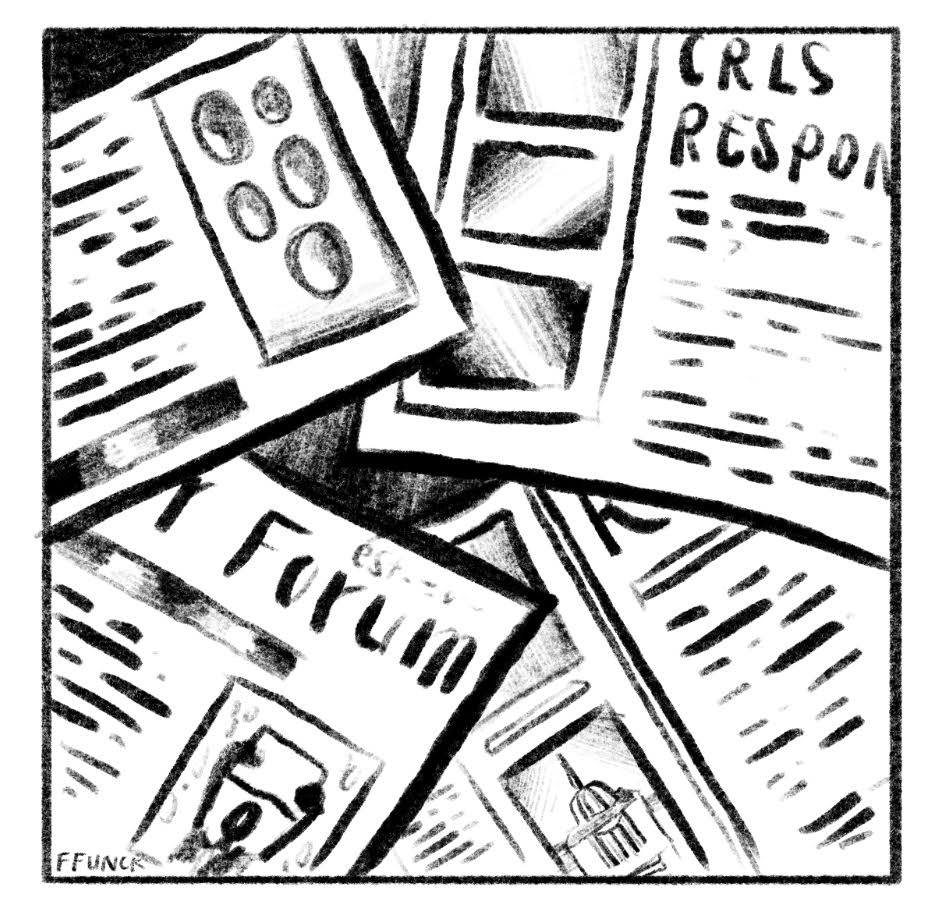How much of your time do you spend doing… nothing? It might seem like a silly question, but think about it: when are you truly just there, no screens, no books, no physical activity, no friends, no meals, no sleep; fully awake, fully conscious, and fully inactive? Unless you make a habit of meditation, for personal or religious reasons, your answer might be… almost none of the time. This was something I contemplated as I prepared for my six hour flight from San Francisco back to Boston. I recalled the short-lived trend of sitting through long flights with zero stimulation, a practice known as “rawdogging.” The more I thought about it, the more attractive the idea seemed. Could I survive the ultimate dopamine detox, the ultimate battle between the id and superego? By the time I entered my terminal, I was feeling ready as ever… to do nothing (except for the occasional note, for the sake of reporting my experiences).
After I had boarded at 2:50 p.m., I laid out the rules: No screens/stimulation whatsoever and no sleep for the entirety of the time I was on the plane. It seemed simple enough.
After half an hour, my thoughts already felt clearer. The first 50 minutes went by like a breeze—but it was around 3:55 pm when the temptation and boredom started to set in. A taunting notice on the screen on the back of my seat popped up, reading: “Instead of reading this slide, you could be streaming, surfing, messaging, multitasking… connecting to our free wifi is as easy as 1-2-3.”
At 4:30, even glancing over at the people across the aisle watching Dirty Dancing, Clueless, and Good Will Hunting, entertainment was extremely difficult to resist. To eliminate external distractions, I put my sleeping bag over my head for a while—the boredom was surprisingly easy to deal with there.
Two and a half hours had passed, and the clear-headedness or internal peace that I had been expecting was nowhere to be seen; it was just plain unpleasant. As two and a half hours turned into three, I was distinctly aware of the passage of every minute, and it was excruciating.
At 6:30 pm, the only thing keeping me going was the idea that I would have to tell people that I failed. I didn’t want to have to say that.
After four hours, there was a dull ache in my head, and the only thought in my mind was how much longer I had left. I thought I might have achieved enlightenment or something at this point, but so far, it had been nothing. At this point, I was starting to lose it. My small fizzy drink from the snack cart was heavenly—an island of sensation in a sea of nothingness.
Once I had an hour left, the mental fog finally dissipated. I envisioned the euphoria of stepping off the plane, checking my email, doing anything but nothing. I had already braved five hours, and one more felt insignificant.
The rest of the minutes whizzed by, and before I knew it, I was off that plane. Rawdogging a flight was a much more intense experience than I had predicted. Do I recommend it? It depends on how masochistic you are. I did learn one thing, though: people say that if you set your mind to it, you can do anything. But I learned that if you set your mind to it—you can also do nothing at all.
This article also appears in our September 2025 print edition.




















